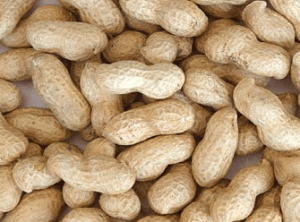Ghana farmers advised on dangers of Aflatoxin in peanut
 Dr. Stephen Nutsugah, the Director of the Savanna Agricultural Research Institute (SARI), on Friday said access to quality certified and improved variety was a starting point for agricultural transformation in crop production.
Dr. Stephen Nutsugah, the Director of the Savanna Agricultural Research Institute (SARI), on Friday said access to quality certified and improved variety was a starting point for agricultural transformation in crop production.
He said the Centre for Industrial and Scientific Research(CSIR)-SARI was well-positioned to deliver on its mandate of crop improvement with the goal to develop crop varieties that fit into the agro-ecologies of the mandate zone that would withstand the specific stresses of low soil fertility, drought, pests and diseases.
Dr Nutsugah said this in Tamale during the Annual Research Meeting of the Feed the Future Innovation Lab project on peanut productivity and Mycotoxin control where over 50 researchers around the world converged to share information on the latest developments in groundnut research.
The annual research meeting is to give meaning to the vision of CSIR by making agricultural research responsive to farmer needs and national development.
Dr Nutsugah said the partnership with CSIR was designed to strengthen the human and institutional capacity for peanut research, generate and disseminate technology and provide selected equipment to enhance research capacity in peanut improvement.
He said CSIR-SARI had released as many as 12 improved peanut varieties to farmers for cultivation over the past ten years and that 70 per cent of farmers in the country use improved crop varieties developed by SARI, which increased production.
Dr. Mumuni Abdulai, a co-principle investigator of the project has indicated that “Aflatoxin” is a disease in peanut production that causes the moldiness of the plant and had an adverse effect on the individual when consumed.
He said the advent of “Aflatoxin” disease in peanut production does not reduce the production yield but could cause serious health related issues such as liver cancer that could sometimestimes result into deaths.
Dr. Mumuni, noted that field management practices need to be conducted to minimal contamination by way of control against pests and insects attack, drought attacks and lateness in harvesting and drying process could all lead to contamination.
“There is the need to create the awareness of farmers on “Aflatoxin” and to make efforts to protect and avoid contamination of peanut production”, he said.
Mr Nicholas Denwar, a senior research scientist at (SARI) said plant breeders have been trying to breed varieties that have very low levels of “Aflatoxin” as a means to preventing contamination.
“By creating enabling environment for other donors to come in to help farmers in peanut production, I can say the government is supporting farmers adequately”, he said.
The annual meeting for the Peanut and Mycotoxin Innovation Lab, which is made up of scientists and student researchers working through the United States Agency for International Development and the Feed the Future Programmme was to improve food security and profits for producers, processors and marketers of groundnut.
Source: GNA
